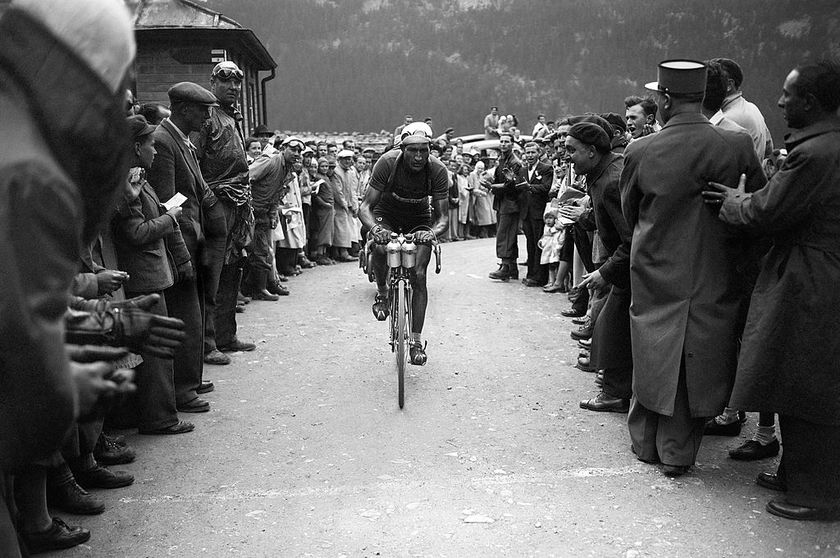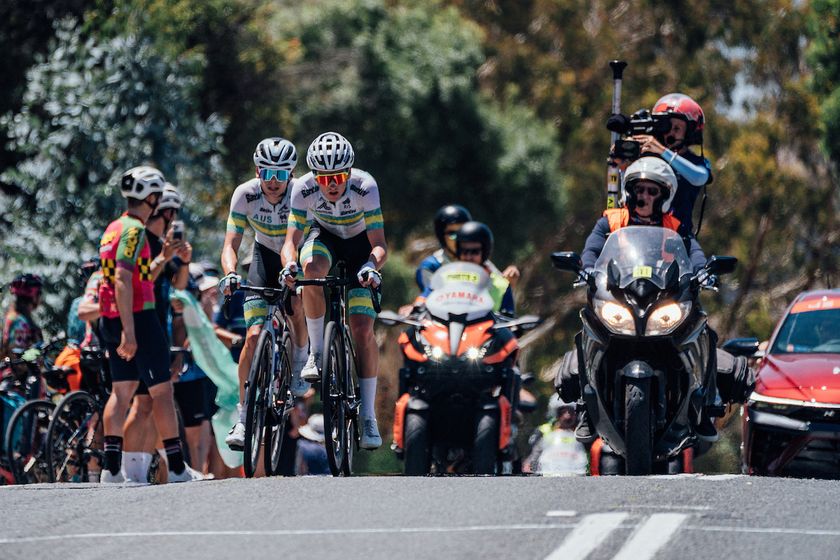Sponsorship woes sink US Continental team Astellas
Riders had to decide early in the season whether to have promised contracts paid out or to continue racing





Astellas Cycling, a third-year US Continental team with a criterium focus, competed for the final time at this month's Boston Mayor's Cup, team manager Andrew Frey confirmed to Cyclingnews.
Astellas is now the third US Continental team to close shop following the 2016 season, with both Team Jamis, a longtime staple of US domestic racing, and relative newcomer Lupus Racing both succumbing to sponsorship woes.
Frey said the team's title sponsor, Astellas Pharma US – an Illinois-based affiliate of Tokyo's Astellas Pharma – used a clause in the company's contract with team owner Cycling Development Foundation (CDF) to back out of the initial level of funding that was in place for the 2016 season. After further negotiations with Frey, he said, the company amended the sponsorship to cover the team through September. With the majority of the team's schedule front-loaded in the season, however, the decrease in budget meant funds ran dry by June.
"We were told by Astellas in February that things would actually even change this year with the sponsorship," Frey said. "After the fact, after contracts had been signed and all that, some stuff had changed. We didn't get to do as many races as we had hoped for, based on the contract with Astellas changing in February."
In a statement sent to Cyclingnews via email, Astellas Director of Corporate Affairs Marjorie Moeling confirmed Frey's timeline but maintained the company honoured all of its contractual obligations.
"In keeping with the terms of the contract, Astellas provided notification to CDF in February that the company would be discontinuing its sponsorship," the statement read. "After speaking with Andrew Frey, and to give the CDF time to find a new sponsor, the Company agreed to continue as title sponsor through the end of the 2016 cycling season. Astellas has fully complied with all contractual obligations to CDF.
"Astellas decided not to continue to be title sponsor for the team in 2017," the statement continued. "Astellas confirms that the company’s decision has nothing to do with the team’s performance or its talented riders – it is purely a business decision. Astellas wishes the team and the CDF success in the future."
Get The Leadout Newsletter
The latest race content, interviews, features, reviews and expert buying guides, direct to your inbox!
Frey said he sought legal advice at the time, but ultimately Frey and CDF decided that renegotiating the contract was the best avenue for the team.
"Do we push for them to honor the original contract or do we renegotiate? Just what would work out best for the team?" Frey said of his choices at the time. "We decided that renegotiating would work out better because of the cost of doing anything with it and the time that it would take."
Frey said the search for a replacement sponsor didn't yield any results that would allow the team to continue. He estimated the amended sponsorship that both parties agreed to in February amounted to a 20 percent decrease in the 2016 budget, leaving riders to decide whether they wanted to be paid the full amount of their promised contracts or use some of that money to continue racing. They chose to keep racing.
"We had that conversation with the riders in February," Frey said. "The conversation that we had was: This is the situation we've been dealt, we can pay out the contracts today and not start one race, or we can be a bike racing team and do the races, get paid as long as we can, and get to go to the races as well, and that we would start working, looking for a sponsor at that point. So that's what we did. The riders all agreed to that."
Veteran team rider Clay Murfet told Cyclingnews the decision to keep racing was unanimous among the riders, and they made it to most of the events on the team's initial program, with the road team missing out only on the Cascade Cycling Classic in July and the crit team keeping a nearly full schedule.
"A lot of the road guys' seasons ended early because we couldn't afford to get to the later-season races," Murfet said. "But for the crit guys it was pretty manageable because you just jump in a van and drive across country to a crit. Logistics for crits aren't too bad, so it worked out well for us crit riders, but it was pretty stressful.
"Pretty much once June came around we were out of money completely," Murfet said. "So they spent the money to get us to the races and pay us to begin with, then once we hit June, pretty much they said, 'We got no money,' and it was all on us. For us crit guys it worked out decent. The morale was up and down. We still had a lot of success and we had a really good year, considering."
Despite putting up good results on the domestic criterium calendar, including wins at the Tour of America's Dairlyland, the Intelligentsia Cup and Athens Twilight, Murfet said the stress involved with the team was "massive".
"There were a couple of us on the team, we'd bought houses, and I was getting married and that sort of stuff," he said. "Financially it was very stressful. We kind of lived off the prize money we were making. But it was pretty much undo-able for the road guys, because you don't make much prize money on the road.
"The biggest thing for me was the mental and emotional stress of what are we going to do," Murfet said. "Can we afford to do this? Can we afford to do that? Are we getting to a race? Are we not getting to a race? And then you look forward to the next year, and you know that if we can't get through this year, then next year we're probably not going to have anything, so what am I going to do next year?"
Frey confirmed there will be no “next year” for the Midwest-based team that started as an elite amateur club in 2012, and for two years raced a full calendar of regional and national calendar events as Astellas Oncology. In 2014 the team signed a deal with Astellas Pharma US that allowed it to jump to the Continental level.
The roster grew to 16 riders and included new recruits from Belgium, Great Britain and Australia, and the team finished third in the team rankings for USA Cycling's National Criterium Calendar behind UnitedHealthcare and Athlete Octane. In 2015, the team was second behind UnitedHealthcare in the NCC team standings, with rider Ryan Aitcheson finishing third in the individual rankings.
Astellas scored a solitary UCI road race win this year when Travis Livermon won stage 3 at the Grand Prix Cycliste de Saguenay in June, and the team continued to excel in criteriums. Now Murfet and the other team riders are left to consider their futures in cycling.
"I've kind of been weighing up whether I'll race or whether I'll do school or something like that," said Murfet, who got married on Saturday. "It's been pretty damn stressful. With Astellas, sometimes I wondered if they knew they even had a team. So therefore they don't likely understand that this is not a hobby, this is our job. So just pulling out money like that affects 15 people plus management. It's a lot of consequences for the riders, but none for them."
Growing up in Missoula, Montana, Pat competed in his first bike race in 1985 at Flathead Lake. He studied English and journalism at the University of Oregon and has covered North American cycling extensively since 2009, as well as racing and teams in Europe and South America. Pat currently lives in the US outside of Portland, Oregon, with his imaginary dog Rusty.
Most Popular






